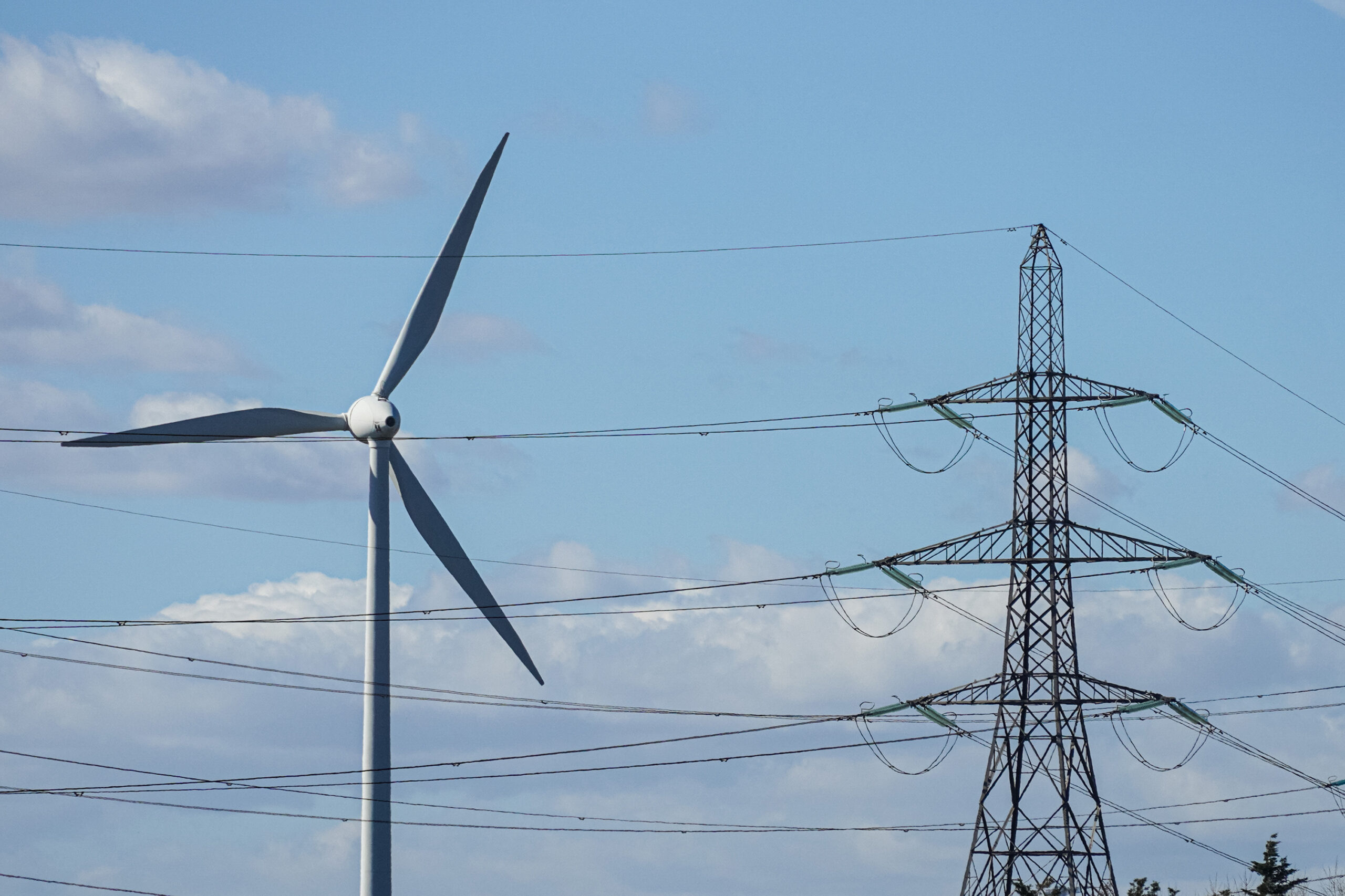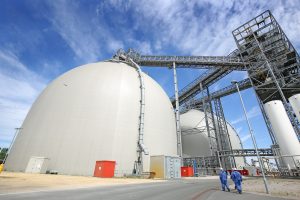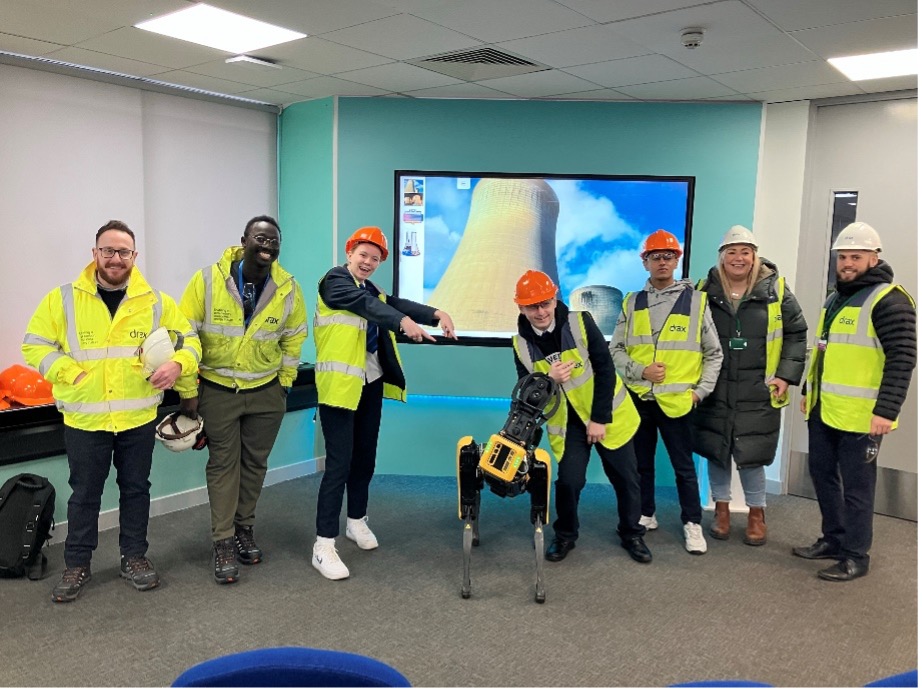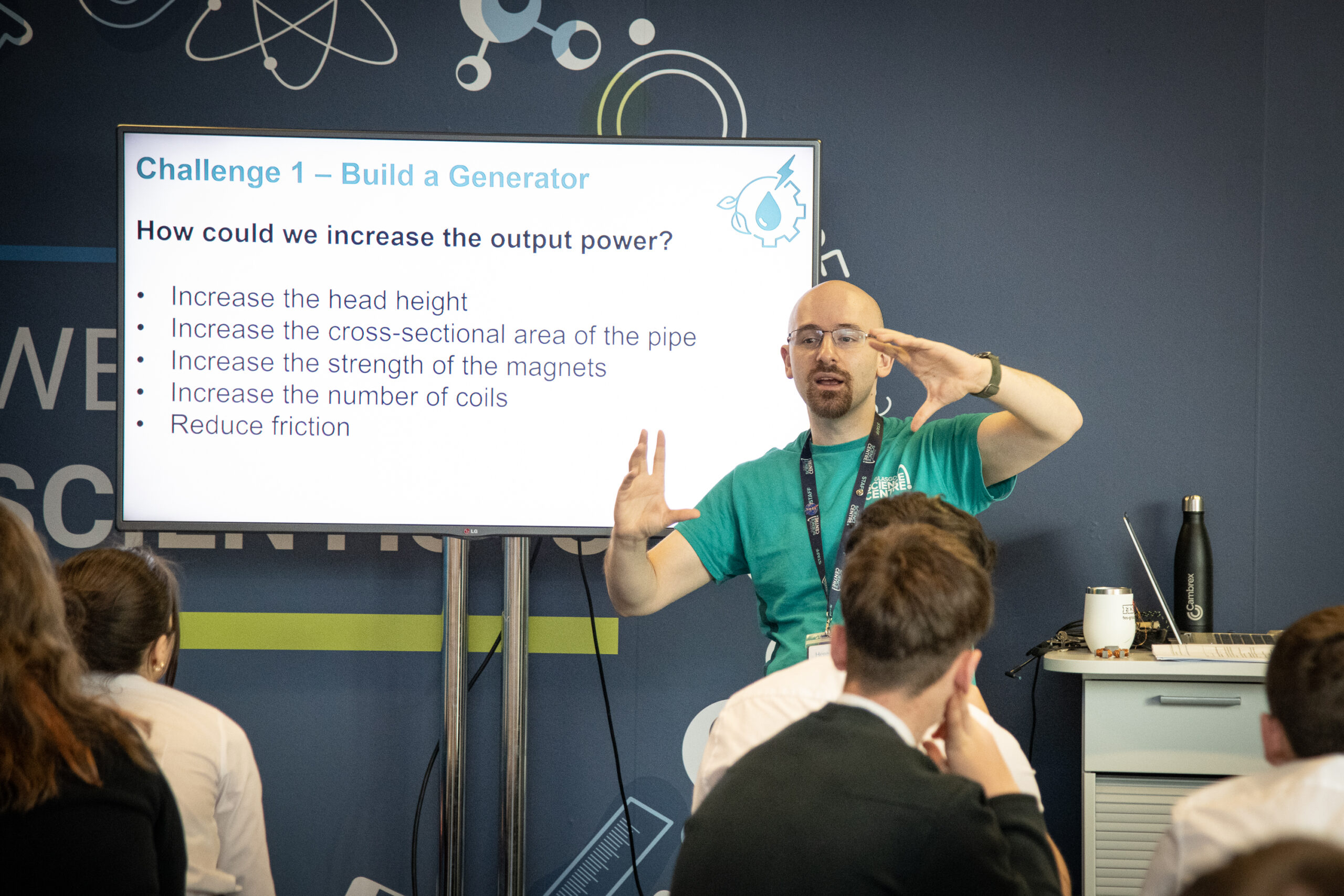
The report, commissioned by Drax with academics at Imperial College London, showed that Britain reached an historic energy milestone in 2024, with wind power becoming the country’s largest source of electricity at 31%, surpassing fossil fuels for the first time in 140 years.
Despite that, 8.3 terawatt-hours (TWh), around 10% of wind generated power produced, had to be curtailed due to grid congestion, costing consumers nearly £400 million. This energy, enough to power over two million homes, was effectively lost because the grid lacked the capacity to transport or store it.

Graph: The rise of wind power and wind curtailment.
Rapidly scaling up storage capabilities such as long-duration energy storage (LDES) and battery energy storage systems (BESS), alongside better grid infrastructure, would mean that excess wind power produced when demand is low could be stored and released it when needed, preventing the grid from relying too heavily on gas during ‘dunkelflaute’ periods. However, without investment and further policy support for these solutions, Britain risks wasting vast amounts of clean energy, the report warns.
Since the birth of the electricity system in the 1880s, coal, gas or oil has dominated Britain’s power generation. Coal held the top spot until the 1980s, when gas took over, but 2024 marks the first year in which a clean energy source has led the way.
“The rapid continued growth of wind power generation should give us cause for optimism on the journey towards clean energy, but that growth presents its own very real and different challenges” says Dr Iain Staffell of Imperial College London, the lead author of the quarterly Drax Electric Insights report series.
“Last year we saw a 17% reduction in emissions compared to 2023, but with more wind comes more intermittency. This was evident across the back end of 2024 and early 2025, with three separate periods of cold, calm weather – known as ‘dunkelflaute’ – exposing Britian’s reliance on costly imported energy and drawing down the nation’s gas storage to ‘concerningly low’ levels.
“Investment in intermittent renewables such as wind and solar is helping us reduce fossil fuel levels in our power generation mix, but without large-scale energy storage and grid upgrades, we will continue wasting clean energy and paying the price for it, especially during long cold snaps and windless conditions.” explains Dr. Staffell.
“With upgraded energy storage and the transmission infrastructure to transport it, we can go some way to ensuring that wind and other forms renewable energy are not wasted, instead moving that power to where it is needed as well as storing it for those periods of dunkelflaute which necessitate dispatchable generation.”
The curtailment of wind energy – where turbines are shut down when there is no capacity to transport their power – is rising at an unsustainable rate according to the Q4 report. In just one year, curtailment doubled from 5.5% to over 10%, largely due to Scotland’s wind farms producing more energy than the grid can carry south to demand centres in England.
“The UK government has set ambitious targets for energy storage and grid reinforcement, but the pace of deployment must accelerate to match the rapid growth of renewable generation.” said Ian Kinnaird, FlexGen Assets Director at Drax.
“Policy incentives, streamlined planning processes, and investment in medium and long-duration storage technologies will all be critical in ensuring Britain fully capitalises on its renewable energy sources. These issues remain crucial to us at Drax, with our run-of-river hydro plants and pumped hydro storage power station at Cruachan ready to support the flexible generation we need to see, in order to transition to a low-cost, clean power grid by 2030.”
For more information and to access the full report, visit Drax Electric Insights here.
Media contacts:
Kieran Wilson
E: kieran.wilson@drax.com
T: 07729092807
Notes to Editors
Case study
SeaGreen offshore wind farm, off of Scotland’s east coast, wasted an astonishing 70% of its output in 2024 because of grid congestion. The financial and environmental costs of such curtailment are mounting, underscoring the urgent need for solutions.
About Drax
Drax’s purpose is to enable a zero carbon, lower cost energy future. Our strategic aims are to be a global leader in both carbon removals and sustainable biomass pellet production, and to be a UK leader in dispatchable, renewable generation.
Our operations
Drax owns and operates a portfolio of flexible, low-carbon and renewable UK power assets – biomass, hydro, and pumped storage generation – which provide dispatchable power and system support services to the electricity grid.
We are the UK’s largest source of renewable power by output, and Drax Power Station is the UK’s largest single source of renewable electricity by output.
Through our pellet production facilities in North America, Drax is a leading integrated producer of sustainable biomass. Drax has 18 operational and development pellet production sites which will have a nameplate capacity of around 5.4 million tonnes once expansions are complete.
Drax supplies renewable electricity to UK industrial and commercial customers, offering a range of energy-related services including energy optimisation, as well as electric vehicle strategy and management.
Our future
Drax is progressing options for carbon removals using bioenergy with carbon capture and storage (BECCS) technology globally and at our UK biomass power station. We are progressing plans to develop 7 million tonnes of carbon removals through BECCS by 2030.
In 2024, we launched Elimini, a US-based company to lead our global efforts to deliver carbon removals at scale. Elimini’s purpose is to remove carbon for good. To achieve this, it is convening engineers, environmentalists, communities, investors, and innovators to scale the market for carbon removals, with the aspiration of transforming our economies from carbon emitters to carbon removers. For more information, visit elimini.com.




















